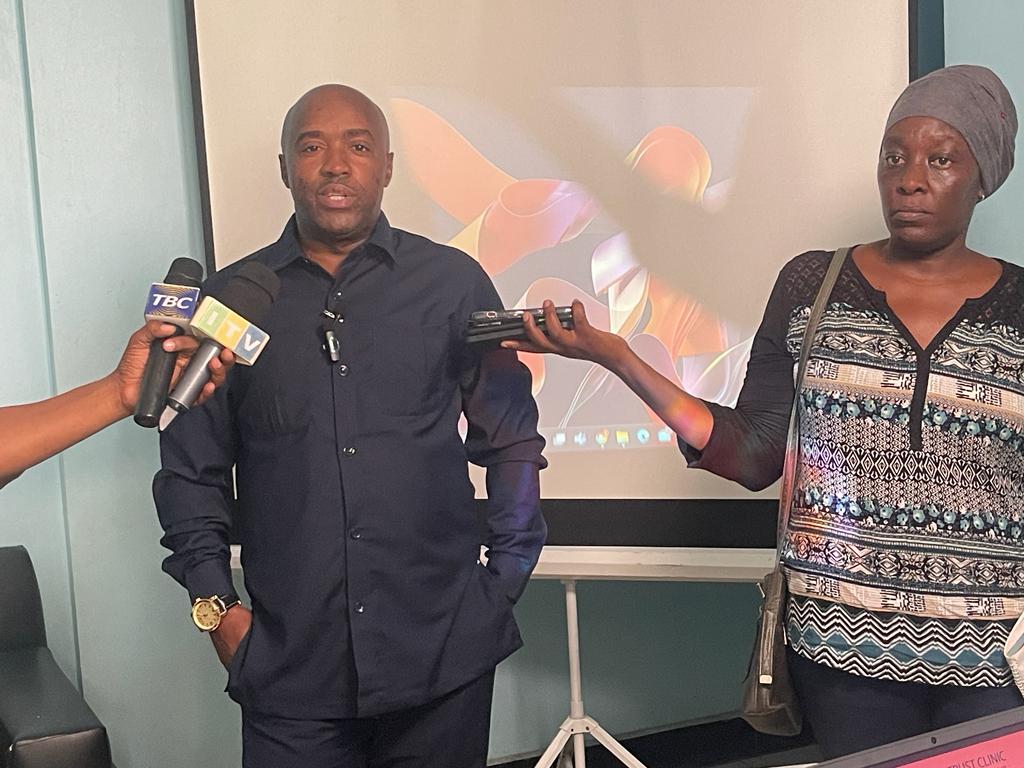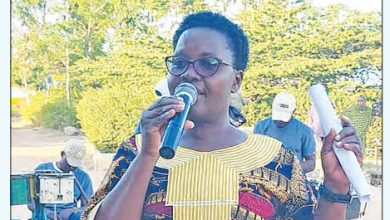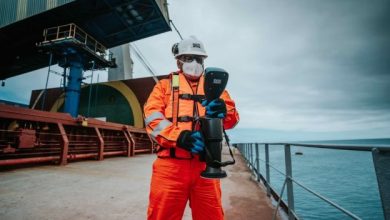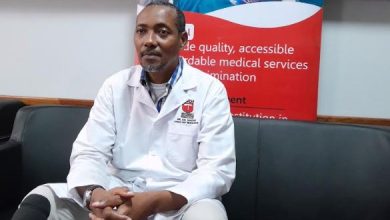Is Msigwa’s 4A9 herbal medicine revolutionising HIV treatment?

DAR ES SALAAM – IN a humble clinic tucked away in Magomeni Mapipa, Dar es Salaam, a remarkable story of hope and resilience is unfolding. Dr TR Msigwa, a Tanzanian innovator and the founder of the 4A9 African Trust Clinic, is redefining the battle against HIV/AIDS with his groundbreaking herbal treatment, 4A9.
Celebrating its 30th year of existence, 4A9 is not just a remedy—it is a movement that is inspiring hope, fueling a belief in African innovation and offering a fresh perspective on how to tackle one of the world’s most pressing health crises.
Dr Msigwa’s journey has been one of determination, against a backdrop of skepticism and adversity.
In an exclusive interview with Daily News, he shared his passion for his work and the challenges he has faced over the years. “There are three types of people in society,” he explains with a calm yet knowing smile.
“There are those loyal to Western medicine, those who doubt the capabilities of Africans and those who believe without verification. These are the hurdles we face when introducing a homegrown solution like 4A9.” But despite these challenges, Dr Msigwa is confident that 4A9 is an answer to one of the world’s deadliest viruses.
The natural remedy has been developed under his supervision and has shown significant promise in eliminating HIV from the bloodstream by boosting the body’s natural immunity—a stark contrast to conventional treatments that suppress the immune system.
“The medicine works by enhancing the body’s natural defences, unlike traditional treatments that rely on synthetic substitutes,” Dr Msigwa explains.

“4A9 detoxifies harmful chemicals from previous treatments, restores natural immunity and even addresses other health conditions.” The key to 4A9’s success, according to Dr Msigwa, is its holistic approach.
The remedy works by reinforcing the body’s natural immune system, empowering it not only to fight HIV but also other immune-related conditions.
“Before using the medicine, it is crucial for patients to have laboratory reports of their condition to track progress and evaluate the medicine’s effectiveness,” he says.
This, he believes, provides intellectual freedom, as patients can clearly see how their condition has improved after completing the treatment. Dr Msigwa’s clinic is a testament to the healing power of 4A9.
The walls are adorned with heartfelt testimonials from patients whose lives have been transformed by the medicine. One story is of a patient who, after struggling with debilitating back pain, saw his life turned around after using 4A9. His condition had caused a fracture in his family life, as he could not father children.
Today, he enjoys a renewed bond with his loved ones. Another patient, once bound by leg weakness that rendered daily tasks impossible, now walks unaided.
According to him, more than a thousand individuals, including HIV patients from Tanzania, Zanzibar and even international locations such as Oman, the United States and Russia, have attested to the effectiveness of 4A9.
“What sets 4A9 apart from conventional treatments is its focus on enhancing the body’s own immune system,” Dr Msigwa explains.
“Western medicine often replaces natural immunity with artificial defences, while 4A9 strengthens the body’s natural ability to fight not just HIV but a wide range of other health issues.”
This distinction, he believes, makes 4A9 a game-changer, not just for people living with HIV, but for anyone battling immune-related diseases. The growing preference for natural remedies in global health is also something Dr Msigwa has observed. He believes that 4A9’s success is in line with this trend.
“People are increasingly seeking treatments that don’t rely on harmful chemicals,” he says. “4A9 is a step in that direction, offering a holistic approach to healing that prioritises the body’s natural functions.”
Dr Msigwa’s approach to HIV treatment extends beyond just providing a remedy. He is equally focused on prevention, recognising the importance of education and awareness in combating the epidemic.
The HIV statistics in Tanzania paints a sobering picture. Most new infections occur among young people aged 18 to 20—an alarming trend that threatens the future of the nation. “It’s heartbreaking,” Dr Msigwa laments.
“These young people are the future leaders of our country and their potential is being cut short.” He urges the Tanzanian government to revisit its policies on HIV prevention and treatment.
Reflecting on former President Benjamin Mkapa’s declaration of HIV as a national disaster, Dr Msigwa calls for similar bold and innovative leadership to mobilise the nation. “During the Covid-19 pandemic, Iran’s youth used their talents to combat the virus, even vaccinating their leaders to show unity and trust in science,” he says.
“Tanzanian youth must use their skills to address the HIV epidemic in the same way.” The World Health Organisation (WHO) reported that the number of people living with HIV globally reached 39.9 million in 2023, an increase of 65 per cent from 2010.
Dr Msigwa warns that the rising infection rates threaten not only the workforce but also the future of entire generations.
“It’s critical that we take proactive measures to curb this epidemic,” he urges.
“The young people of today must take their health seriously. Know your status, use protection and stay informed. When you protect yourself, you’re also protecting others.”
One of Dr Msigwa’s core beliefs is that the fight against HIV must be a collective responsibility. He stresses the importance of empowering communities with knowledge and education.
“The government and private sectors must expand HIV education and embrace innovative solutions like 4A9,” he says. “It’s not just about medicine; it’s about changing mindsets and empowering people to take control of their health.”
His approach to selecting individuals to work with 4A9 is also rooted in integrity and honesty. “Anyone who works with 4A9 must understand what it is, who it can help, and which problems it addresses,” he says.
“But they also must be honest, hardworking and dedicated to serving the community with sincerity and truth.
Empty talk will not help anyone.” As World AIDS Day is observed every December 1, Dr Msigwa’s story stands as a powerful reminder of the perseverance and hope that can emerge from even the darkest of challenges.
His work is not just about providing a cure but about giving people hope, dignity and a future. His vision for the future is clear: A world where HIV is no longer a death sentence but a manageable condition.
With 4A9, Dr Msigwa is making that vision a reality, one patient at a time. In Magomeni Mapipa, Dr Msigwa’s clinic continues its mission, offering more than just a remedy—offering hope, empowerment and the promise of a healthier future.
For Tanzania and the world, 4A9 stands as a beacon of hope and a testament to the extraordinary potential of African innovation in solving global health challenges





